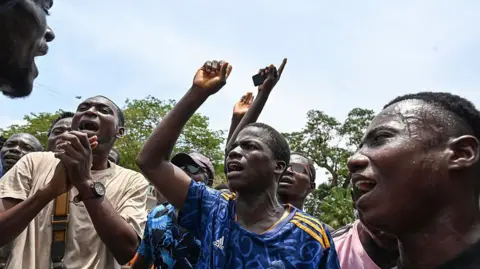
Ivory Coast is entering a period of mounting political unease as the October 2025 presidential election approaches, raising fears of unrest reminiscent of the country’s 2010-2011 post-election crisis.
The recent arrest of “cyberactivist” Mamadou Zigui, a member of the African Peoples’ Party – Côte d’Ivoire (PPA-CI), has intensified concerns over freedom of expression and political tolerance.
Zigui was detained on the night of September 2 after posting a video on social media calling on Ivorians to gather peacefully with the national flag to follow the Constitutional Council’s deliberations on the final list of presidential candidates, scheduled for September 10.
Justin Koné Katinan, president of the PPA-CI’s Political and Strategic Council, condemned the arrest as “abusive” and a serious infringement on free expression.
“If calling for people to come out with the flag to listen to a judicial decision is a crime, then where are we going?” he asked, emphasizing that democracy relies on the freedom to voice dissenting opinions.
Zigui’s detention is not isolated. In recent months, several opposition activists have faced arrest or sentencing.
Last June, sociologist Gala Kolébi, affiliated with Laurent Gbagbo’s party, was sentenced to 18 months in prison for “disturbing public order” and “spreading false news.” Earlier in the year, two other party officials were sentenced for “endangering state security.”
Authorities justify these actions as necessary to preserve public order, but critics argue they represent a deliberate effort to silence political opposition in a pre-election context.
The political climate evokes painful memories of the 2010-2011 crisis, when disputes over election results between then-president Laurent Gbagbo and Alassane Ouattara sparked months of civil conflict, leaving more than 3,000 dead and thousands displaced.
With institutions such as the Constitutional Council under intense scrutiny, questions about impartiality and fairness are central. Observers warn that even minor perceptions of injustice could ignite public unrest.
Analysts stress the need for collective responsibility: government, opposition, civil society, and citizens must ensure the electoral process remains transparent and peaceful. “Political space must remain open, even to dissenting voices,” experts note. With only weeks until the election, Ivory Coast faces a crucial test of its democratic resilience and the ability to prevent a relapse into violence.



